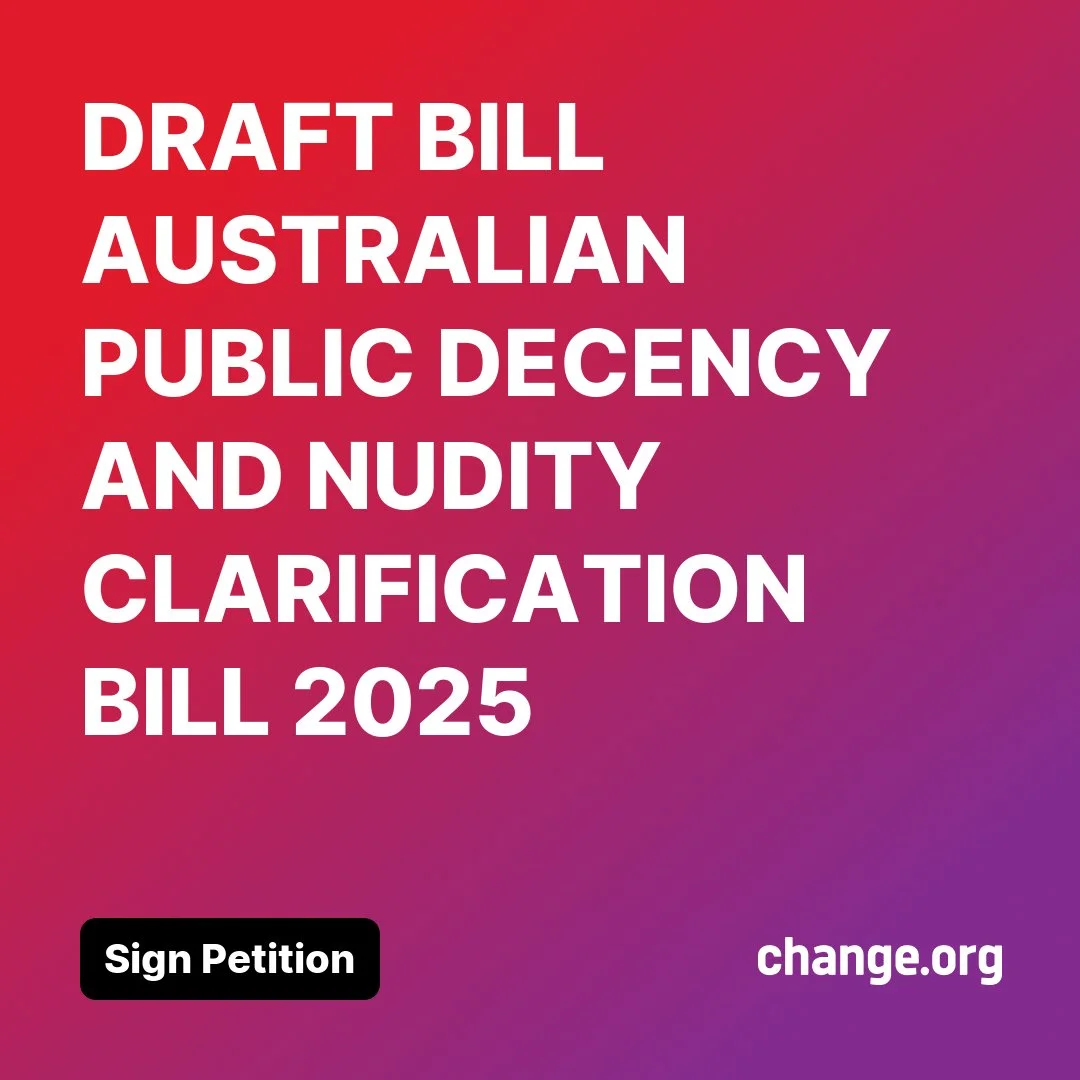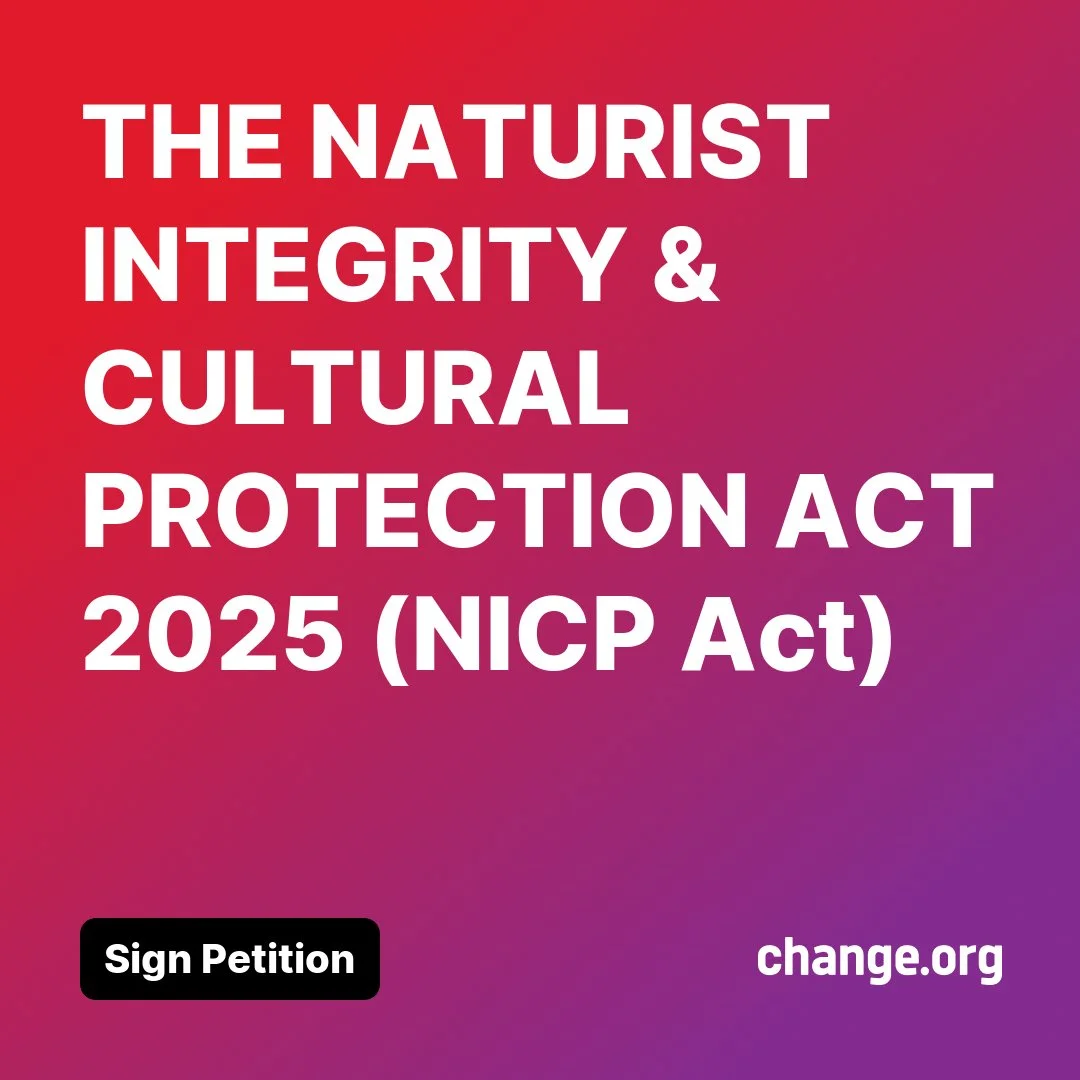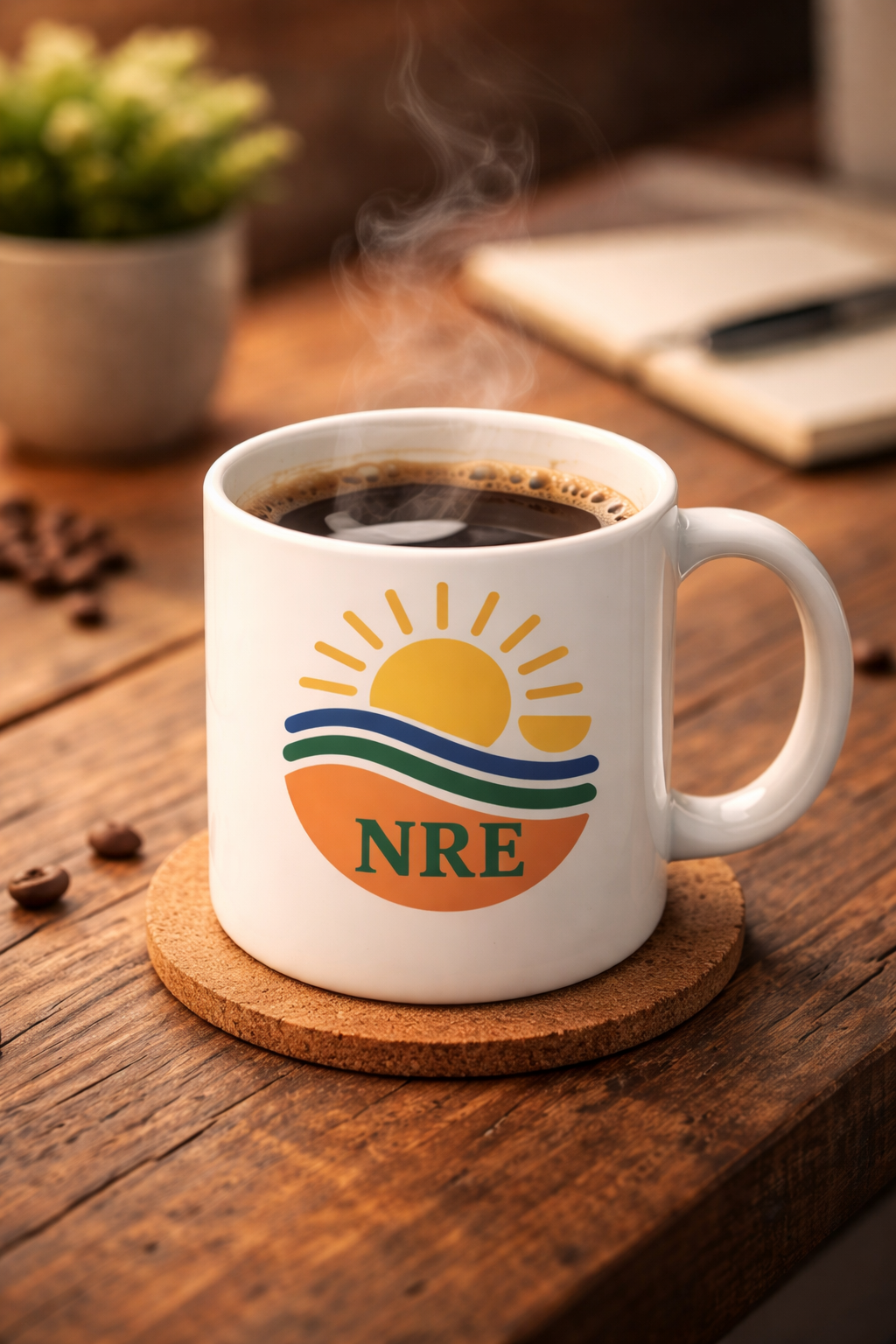GLOBAL COVERAGE: NRE Founder & Petition at the centre of a Daily Mail Exclusive
+
📖 H&E Naturist – Two-Page Special - NRE explain it all - Only in H&E Naturist October 2025 issue
The October 2025 issue of H&E Naturist, the world’s longest-established naturist magazine, dedicated a full two-page article to NaturismRE. The feature explained our goals, our advocacy, and why naturism is entering a new era of recognition.
www.henaturist.net
If I was living in Europe, my lifestyle would be acceptable... but Australia is too conservative and I can't be naked where I want to be. Here's why it should change | Daily Mail Online ( This line was from the editor not the founder )
Watch the videos clips below to find out why the draft Decency and public nudity clarification Bill 2025 is every Australian concern and not just nudists & naturists
The Daily Mail article included excerpts of my responses. For clarity and transparency, I am publishing my full written interview below. This way readers can see the complete context of what I shared, unedited.
As per NRE policy and belief in transparency, please find below the full interview transcript:
Interview Responses (pasted below)
1. Please can you tell me about yourself – name, age, which part of Australia you live in, what your job is day-to-day, how long you have practiced nudist/naturist community?
My name is Vincent Marty, I’m 57 years old, and I’ve called Australia home since 1996. I was born in the south West of France, lived in England and Hong Kong, and eventually settled here permanently.
Professionally, I’ve had two long careers. For over two decades, I worked in the hospitality industry, starting as an apprentice chef and eventually managing multimillion-dollar venues. Then I moved into security, where I’ve now spent 25 years as a consultant, licensed operator, and business owner. I also hold a Defence Broker Licence, one of only 18 entities in Australia with that authorisation. By choice, I focus exclusively on non-lethal technologies, because I believe in creating safety without contributing to harm.
Today I balance my cleaning business, security consulting, and what I see as my life’s real work: building Naturism Resurgence (NaturismRE), its spiritual branch Naturis Sancta, and preparing Aussies Power (DemokrAi), a new political vision I plan to launch in 2026.
My naturist journey goes right back to when I was 12 years old in rural France. Summers meant rivers, fields, and forests, where being clothes-free felt natural and freeing. Later, I visited naturist villages like “Ma hang” near the town of Leon, and Cap d’Agde, where tens of thousands live nude every summer. That showed me that naturism wasn’t fringe… it was cultural, healthy, and normal. Since then, naturism has been a thread running through my whole life, from Europe to Hong Kong to Australia.
2. Please can you describe the feeling of being nude in nature?
For me, nude hiking is both freedom and health. I regularly hike 20 to 35 kilometres a day, often carrying a 17–25 kilo pack depending on how remote I venture. Being nude in communion with nature is my health time. While it’s unlikely to cure any serious illness, it provides the exercise I need as I’m overweight, and those regular hikes help me keep my weight in check. They also boost my immune system, help my body generate vitamin D, and, as I’ve said before, they reset my mental state and sharpen my concentration.
On the trail, it feels like a walking meditation. I’m aware of everything , the rhythm of my steps, the warmth of the sun, the cooling breeze, the songs of birds, flies and bees buzzing, even the sound of a creek in the distance. Everything feels amplified yet melts into the background. In that state, I don’t feel pain or tiredness. My thoughts clear, and often solutions to challenges appear without me forcing them.
By the time I stop, remove my shoes and socks, and walk barefoot, I feel completely part of nature. It’s humbling, as you realise we’re only here for a blink of an eye, yet we complicate life so much when there’s a way to simplify it. Nude hiking gives me peace, health, and clarity.
3. Where are popular spots in Australia?
Australia has a mix of official clothing-optional beaches, unofficial naturist spots, and a network of clubs and retreats.
Legal naturist beaches in NSW include:
Lady Bay Beach (Watsons Bay) – designated since 1976.
Cobblers Beach (Mosman, Sydney Harbour).
Obelisk Beach (Mosman, Sydney Harbour).
Armands Beach (near Bermagui).
Birdie Beach (Lake Munmorah).
Samurai Beach (Port Stephens).
Werrong Beach (Royal National Park, though now closed due to unstable cliffs).
Unofficial naturist spots are also widely used: Little Congwong Beach (La Perouse), Shelly Beach (Forster), Myrtle Beach, Little Diggers Beach (Coffs Harbour), Jibbon and Little Jibbon Beaches (Royal National Park), Ocean Beach and Kings Beach, and Little Pebble Beach (Halliday’s Point). These places operate in a legal grey zone and tolerated by some, but always at risk of police enforcement or complaints.
Sadly, some iconic locations have been lost like North Belongil Beach in Byron Bay lost its legal status in 2024, despite petitions and protests. Miners Beach in Port Macquarie is no longer nudist. And River Island Nature Retreat south of Sydney, once a favourite for many naturists, has been sold and no longer allows nudity.
Beyond beaches, Australia has a network of naturist clubs and private retreats. These have traditionally been the backbone of organised naturism, but most restrict membership to couples or families. Very few welcome singles openly, which is why many Australians choose to practice naturism independently, at beaches, on hikes, or at private gatherings rather than in club settings.
So while naturism is alive and well, the picture is uneven… a handful of legal beaches, many unofficial grey areas, declining recognition in some regions, and clubs that don’t always reflect the diversity of naturists today.
4. Where would you like nudity to be more accepted?
I’d like to see nudity accepted on more beaches in popular areas and all other beaches, in bushland, along riverbanks, in sections of national parks, and even in parts of city harbours and city parks, so city people have a safe space to practice, similar to France in the Parc de Vincennes in Paris.
France, Spain, and Germany all recognised naturism legally nearly a century ago, and today they allow clothing-optional use in many public spaces, including trails and riverbanks. Germany even has official FKK hiking routes. Australia has the landscapes and climate to do the same, but instead we treat harmless nudity as indecency.
It’s important to stress this isn’t about forcing nudity on anyone. It’s about giving those who wish to practice non-sexual nudity for health and wellbeing the legal right to do so, without fear of fines or stigma.
5. Should there be areas ringfenced for nudist/naturist people in Australia like the nudist beaches in Europe? If so, where?
Yes. If we can set aside areas for dog parks, fishing, and bike lanes, we can set aside spaces for naturists. Right now, naturist spaces are shrinking - Werrong is gone, River Island is gone, Alexandria Bay is gone, North Belongil has lost its legal status. Without action, the community is left to rely on unofficial areas at constant risk.
The solution is simple: councils and park authorities should designate clothing-optional beaches, sections of national parks, and bush trails. They already have the right to do so under Section 633 of the NSW Local Government Act. Clear signage gives certainty to everyone and naturists can enjoy themselves legally, and others know exactly what to expect.
Europe showed the way nearly a century ago. Australia has the opportunity not just to catch up, but to lead if it chooses.
6. Is there a reason why Australians might be unwilling to embrace nudity?
Australia loves its beaches and outdoors, but culturally we’re still conservative. Many people confuse nudity with sex, when in reality naturism is about health, respect, and freedom.
In over 45 years of nude hiking, I’ve been “caught” a few times. People always stop, and the first thing they ask is: “Are you ok?” because they don’t know what to say initially. Then, as I explain my lifestyle, they smile, chat, or even admit they’ve skinny-dipped before. I’ve never had a negative encounter. In fact, only once did an encounter go further — the hiking couple I met decided to disrobe, skinny dip with me, and then hike back together nude.
At the same time, there is a whole new generation keen on disrobing, and they’re doing it through movements like Get Naked Australia. Brendan Jones, who leads that community, is doing a fantastic job organising events that resonate with younger people and showing that body freedom is social, fun, and positive.
The real barrier is outdated laws and stigma. But those can change with education and recognition, and that’s what I am working on with NaturismRE: from the creation of the 11 Levels of Naturism (to encourage inclusivity and show that naturism is about health, not just nudity … nudity is only part of it, if you choose it), to drafting industry standards, to the Public Decency and Nudity Clarification Bill 2025. On top of that, we’ve written the NICP Act — the most powerful and comprehensive draft legislation ever proposed, not only to recognise and protect the naturist and nudist lifestyle, but also to protect the very words themselves: nudism, naturism, clothing-optional. Without that protection, we risk misuse, like in Brazil, where an organisation has publicly claimed it owns the word naturism and only its affiliates may use it.
For me, naturism is not about shock or rebellion. It’s about freedom, equality, respect, and reconnecting with nature. The same values guide my professional life: I hold a Defence Broker Licence, one of only 18 in the country, and I’ve chosen to deal only in non-lethal technologies. Just as I believe safety doesn’t need to mean violence, I believe naturism doesn’t need to mean indecency.
Naturism clears the mind, strengthens the body, and reminds us of our shared humanity. Australia has everything it needs to become a world leader in naturism — if only we give it the space to breathe.
Check the petition by clicking any image below or scanning the QR code - Thank you!
🌍 The Next Step: The NICP Act
Mainstream media coverage is just the beginning. What truly matters is lasting legal recognition and protection for naturism worldwide.
That is why NaturismRE has drafted the Naturist Integrity & Cultural Protection Act (NICP Act) — the most ambitious legislative proposal ever created for naturism.
What the NICP Act Does
Recognises naturism as a cultural and lifestyle practice with deep social, health, and ecological benefits.
Protects the words “naturism,” “nudism,” and “clothing-optional” from misuse or commercial appropriation, ensuring they belong to the community — not to any one organisation.
Differentiates clearly between non-sexual naturism and lewd behaviour, providing legal certainty to both naturists and authorities.
Encourages governments to designate clothing-optional zones in parks, beaches, trails, and urban areas, similar to systems already in place in France, Spain, and Germany.
Promotes equality and inclusivity by affirming naturism as a valid, protected lifestyle choice in line with human rights principles.
Why It Matters
Without such protection, naturist spaces continue to shrink, communities are left in legal grey zones, and entire movements risk being sidelined or even trademarked by private groups. The NICP Act ensures naturism is recognised as cultural heritage to be preserved, not suppressed.
How You Can Help
Read and share the draft NICP Act → [Insert link to full text or summary on NRE site]
Support the petition → Every signature builds momentum for recognition.
Join NRE membership → Strength in numbers gives us the power to push governments worldwide to adopt this framework.
🌍 Global Coverage
NaturismRE (NRE) is making waves worldwide.
Our mission to bring naturism back into the spotlight — as a lifestyle, philosophy, and global movement — is gaining recognition from leading international media.
Featured Media
📰 Daily Mail – Global Feature
In September 2025, the Daily Mail published an exclusive interview with Vincent Marty, Founder of NaturismRE, highlighting the Decency & Nudity Clarification Bill 2025 and the growing worldwide momentum behind naturism.
👉 Read the feature
📖 H&E Naturist – Two-Page Special
The October 2025 issue of H&E Naturist, the world’s longest-established naturist magazine, dedicated a two-page article to NaturismRE. The coverage emphasised the importance of advocacy, education, and a global voice for naturism.
👉 See the feature
Why This Matters
Being featured in both a mainstream global outlet (Daily Mail) and a leading naturist publication (H&E Naturist) within the same week shows the power of our message. Naturism is no longer confined to the margins — it’s being recognised as a serious cultural and social movement.
Stay Updated
We will continue to update this page as more publications and broadcasters cover NaturismRE worldwide.
Follow us for the latest features:
Instagram: @NaturismRE
X (Twitter): @NaturismRE















